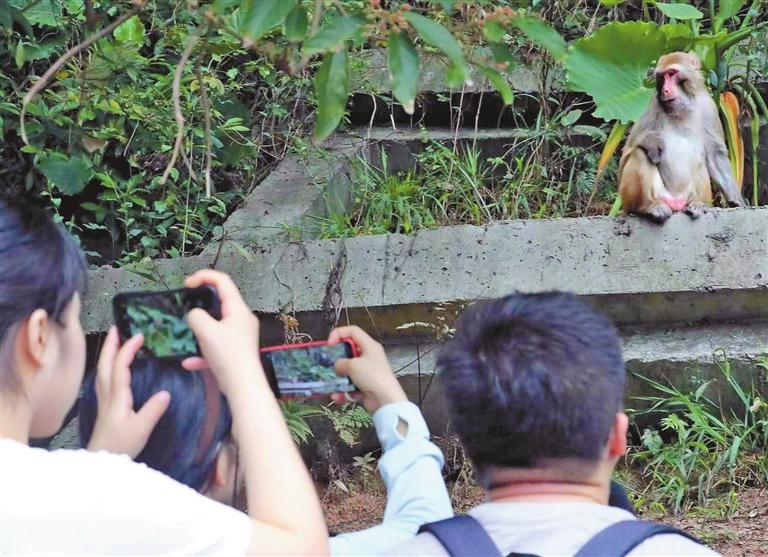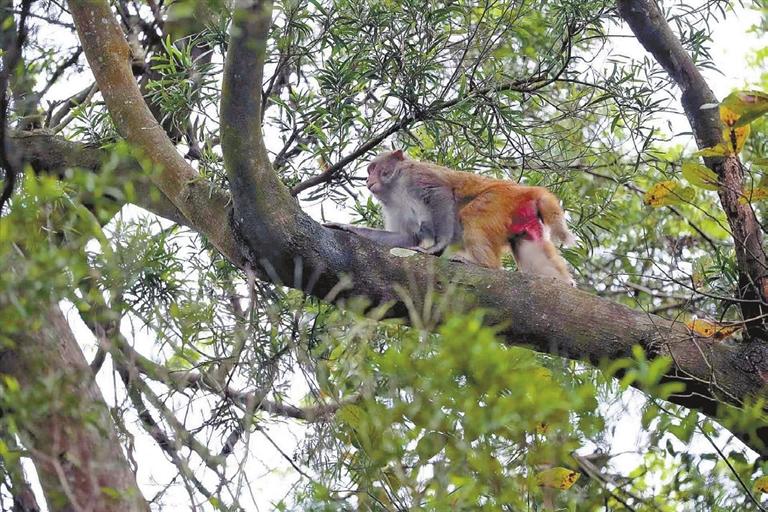

MACAQUES in Tanglang Mountain have become a recent obsession on social media as more netizens shared photos of the playful monkeys. However, many of the shared images depict tourists engaging in the practice of feeding, a concern that has raised alarm with the park’s management authority. During a recent visit, the social media account of Szdays documented tourists offering macaques oranges, peanuts, and even chocolates. Startlingly, some visitors consider this to be part of their regular routine. Despite prominent signs posted in key areas of the mountain explicitly urging tourists not to feed the macaques, compliance with these warnings has been inconsistent. “Some people persist in this behavior, despite our daily reminders,” a park staffer said. Researchers from Sun Yat-sen University have described the feeding activities, particularly on weekends, as disastrous. The most alarming consequence of this feeding is the increased likelihood of macaque attacks. These wild creatures share genetic similarities with humans, rendering the bacteria and viruses they carry, such as dengue and monkey herpes, a potential threat to human visitors. Furthermore, macaques possess a naturally diverse and balanced diet in the wild. However, tourists have been offering them foods rich in sugar, salt, and oil, which can lead to long-term malnutrition in these animals, according to the researchers. The act of feeding not only diminishes macaques’ ability to survive in their natural habitat but also exacerbates human-monkey conflicts. A research project conducted by Sun Yat-sen University highlighted that most macaques remain confined to a limited area, shuttling between two pavilions where tourists often congregate to rest and feed them. Under normal circumstances, their range of activity would be more extensive. According to the report of Szdays, local authorities in Hong Kong and Taiwan have implemented regulations to penalize feeding behaviors and even undertaken mass sterilization to control macaque populations. Common macaques are classified as national second-class protected animals, with individuals causing intentional harm to them facing potential custody in cases of serious offenses. (Wang Jingli) | 
